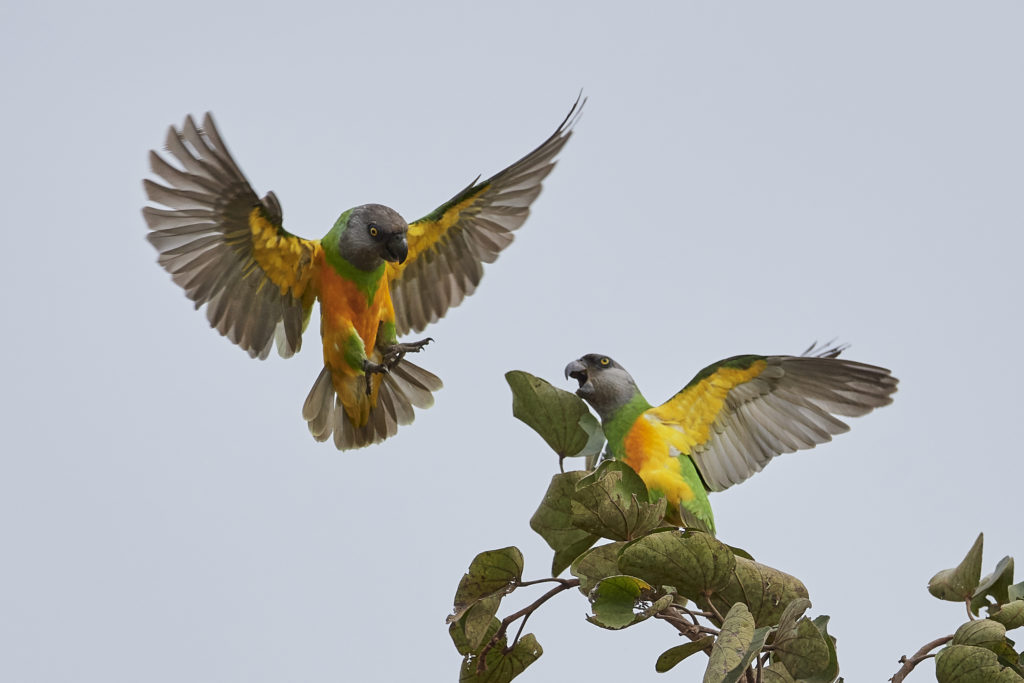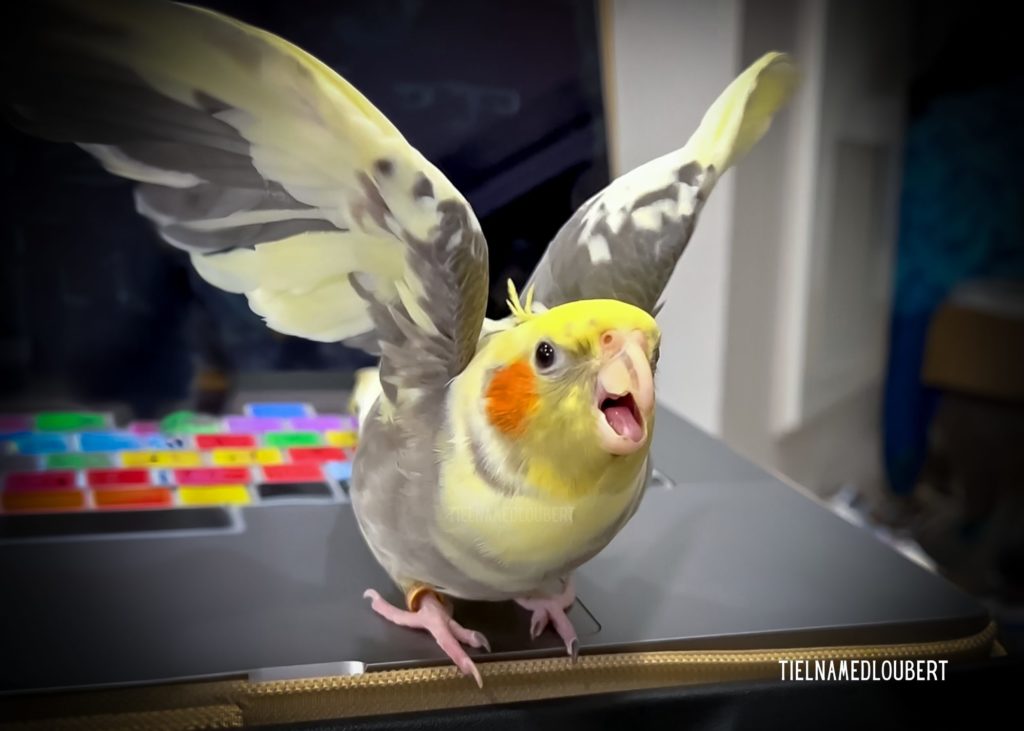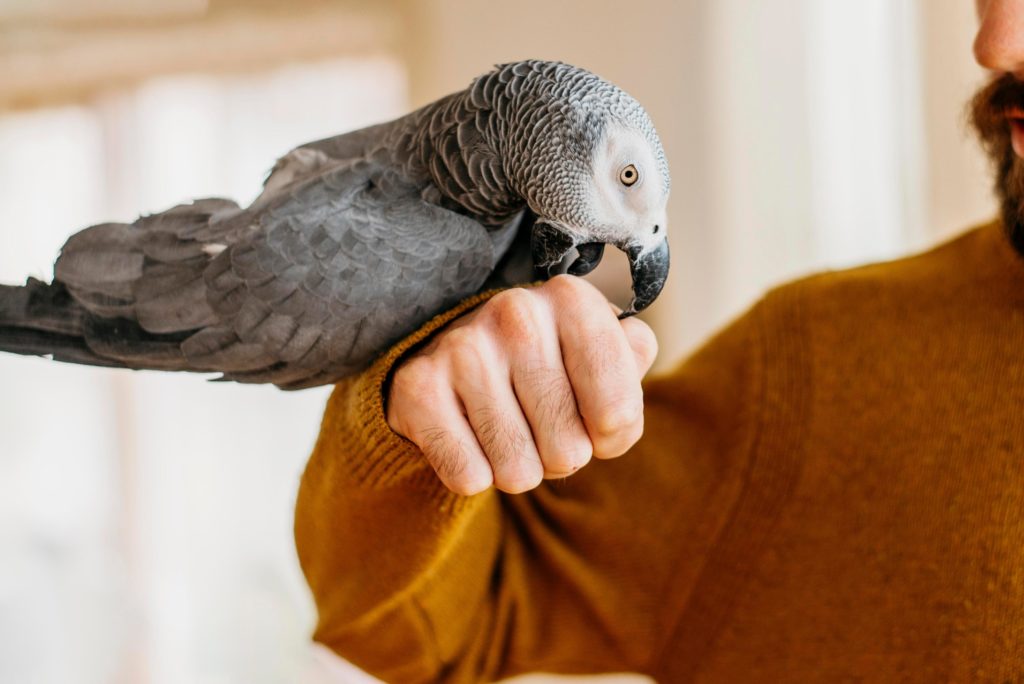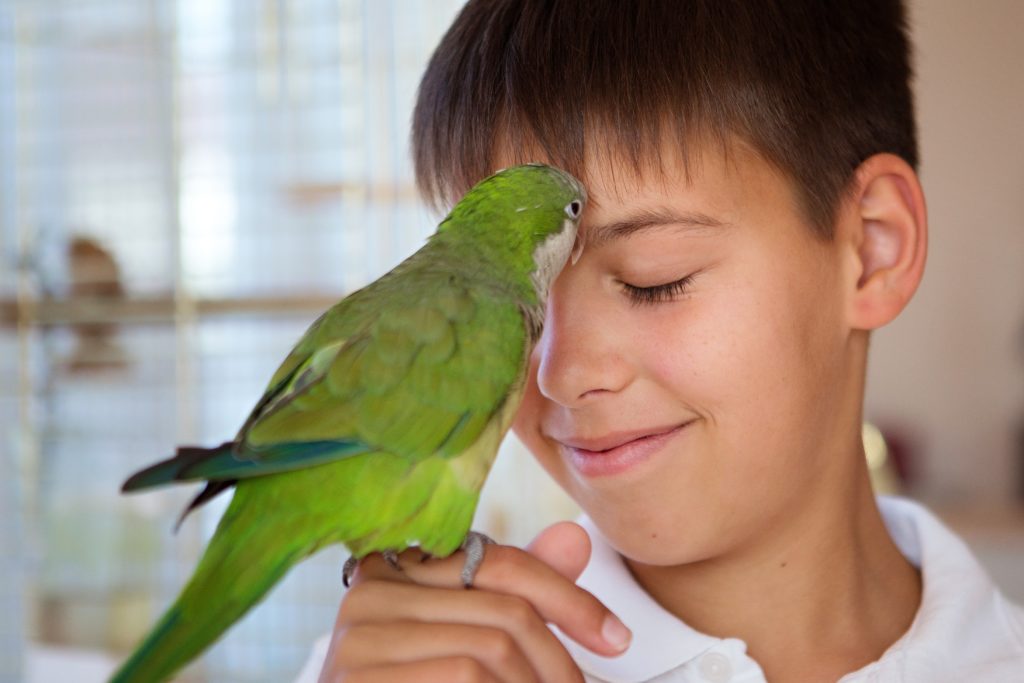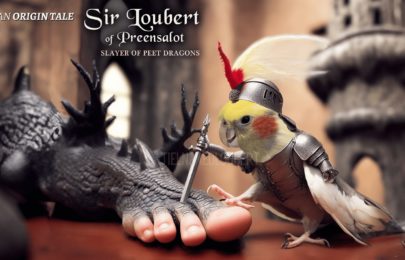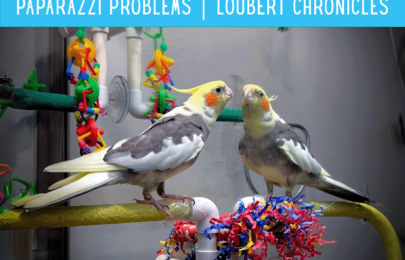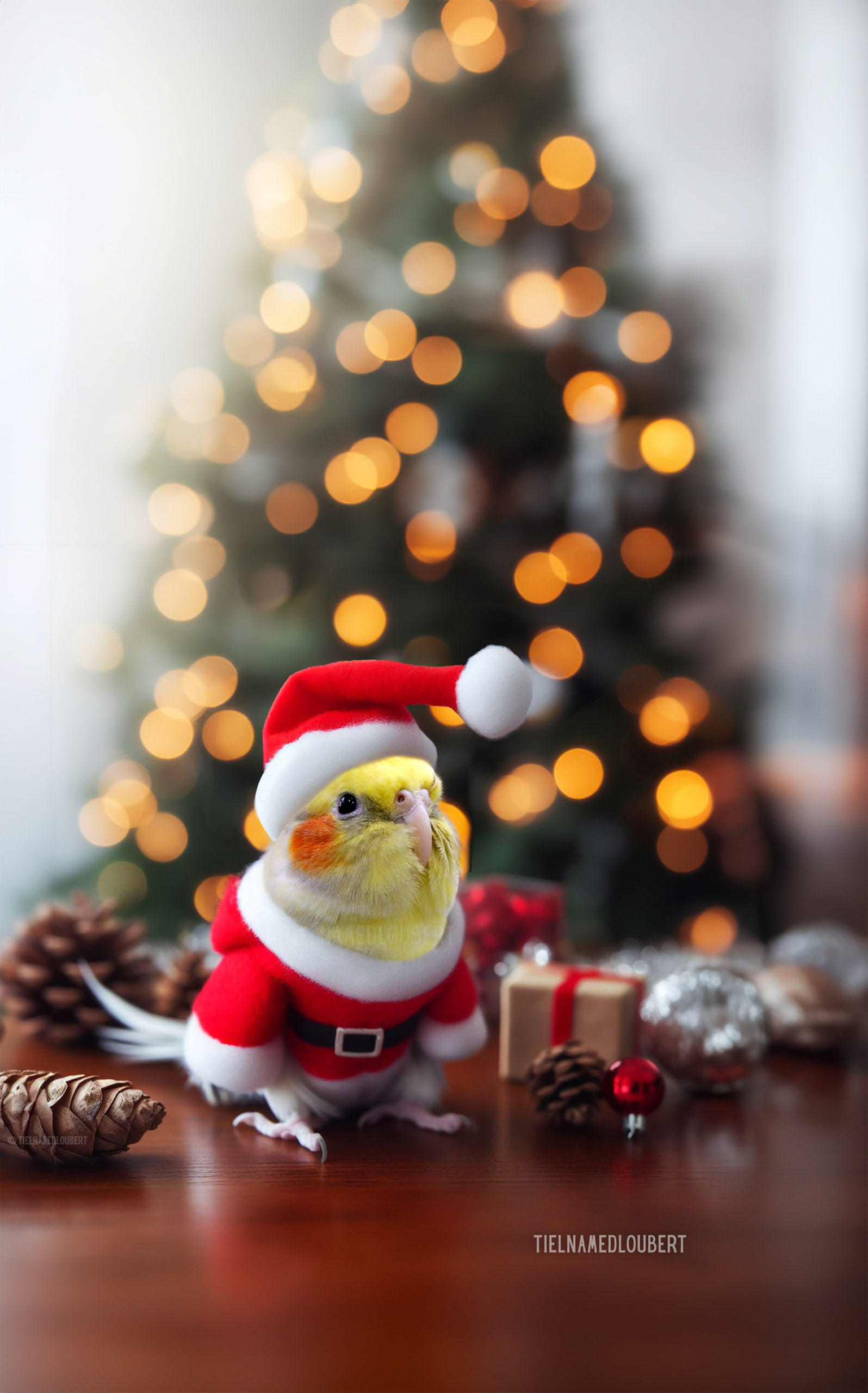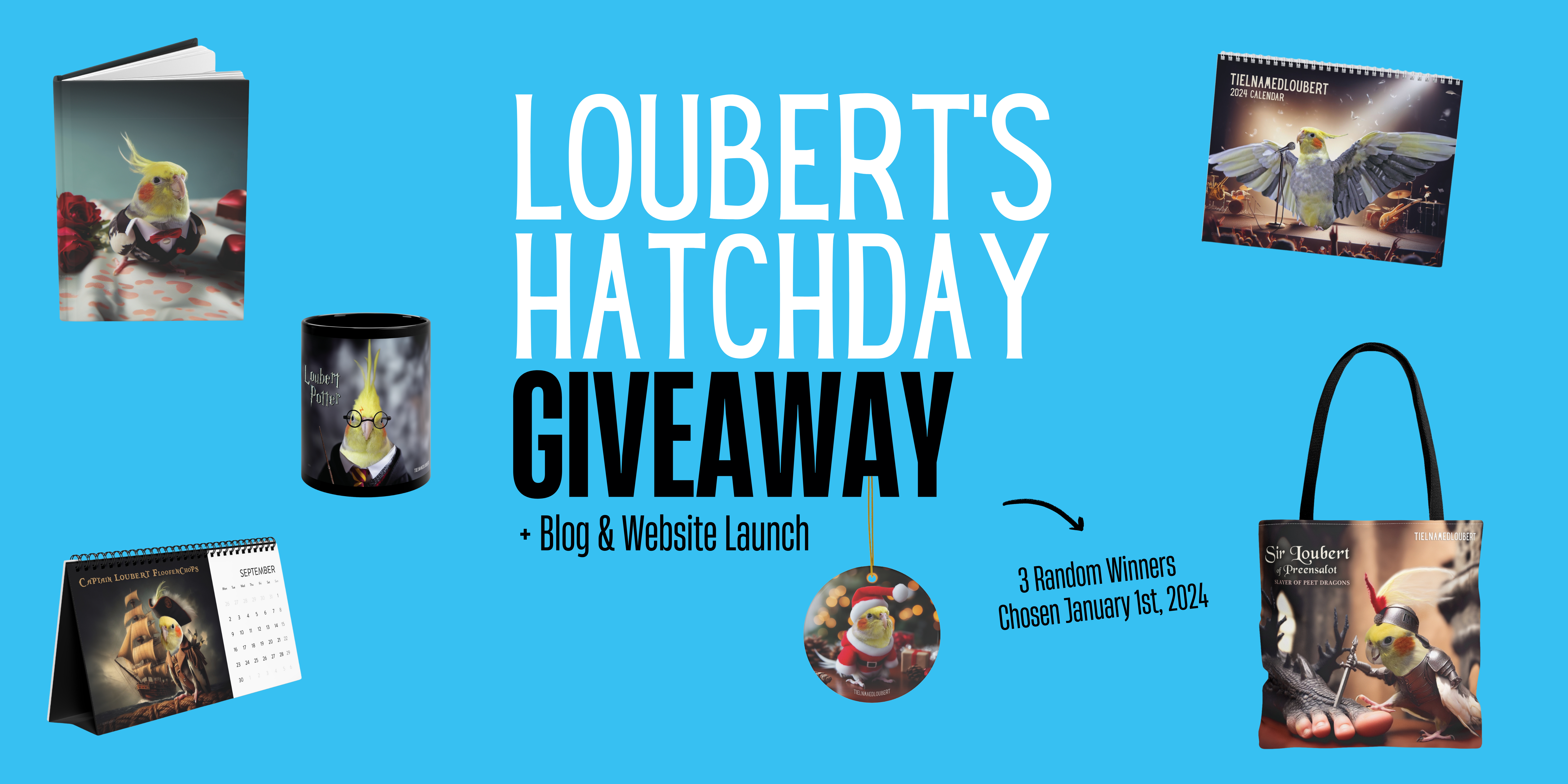
Life with Parrots: Biting Behaviors
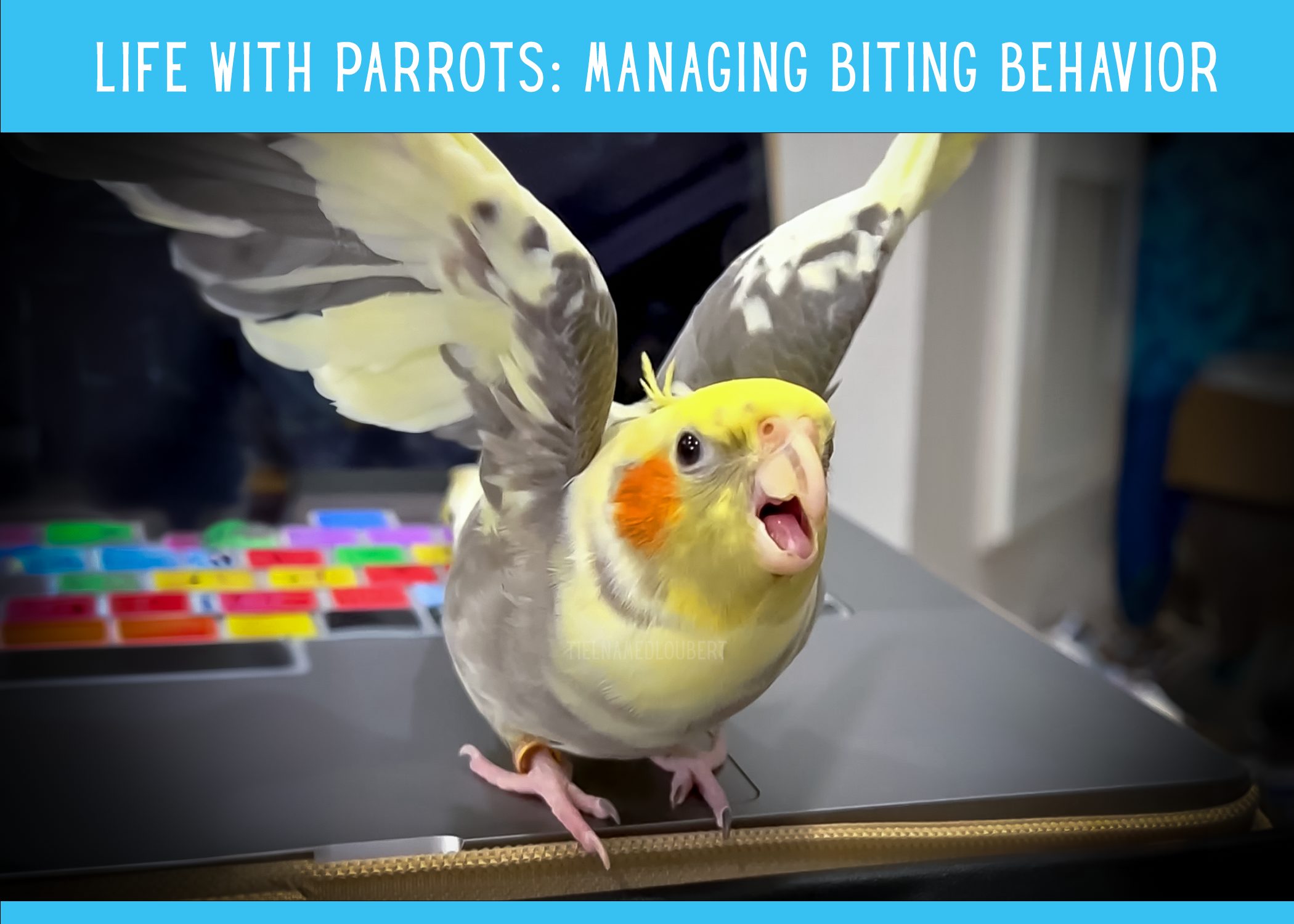
Having a parrot companion is an enriching experience that offers a unique opportunity for a relationship with a sentient being who overflows with intelligence and charm. However, sharing life with a parrot comes with an unpleasant reality for humans: you’re likely to get bitten from time to time, or all the time, depending on the bird. Parrots have strong beaks, meaning they can do a lot of damage, even unintentionally. Navigating the eventual, and hopefully occasional, challenge of a parrot’s bite is essential for the relationship to thrive. In this guide, we demystify the reasons behind why parrots bite and offer practice advice to help manage and prevent them.
Wild Instincts of Parrots Kept as Pets
Parrots are not as domesticated as other animals we consider pets, like dogs or cats. Birds continue to have more instinctual behaviors in captivity, with biting being a prominent one. It’s essential for people who share their lives with parrots to understand the reasons behind the biting behaviors and understand that it has nothing to do with malice. Figuring out the ‘why’ is the first step towards addressing and preventing biting from our feathered friends.
Primary Motivations for Parrot Biting
There are various reasons that trigger parrots to bite, often based on a reaction to a specific stimulus and not out of anger or spite. Learning to recognize a bird’s triggers will help create a safer home for parrots and their humans. Here are four main reasons that parrots bite:
- Fear or Changes in Environment: Birds fear things that they are unfamiliar with and may feel threatened. When parrots feel threatened by strangers, unfamiliar family members, new objects, changes in décor, or even new treats, they may bite in response. Introducing new things and people slowly while incorporating treats into the presentation of new people and experiences can help reduce anxiety and avoid biting.
- Territorial Behavior: Another behavioral instinct that parrots have is to guard their home or their nest, food, toys, or even their favorite friends by force if necessary. Parrots can be highly territorial over their spaces, such as caves, dark areas, and any place they consider a potential nesting spot. During hormonal times, parrots can become more aggressive and territorial about random spots in their cage or the home. An otherwise sweet and loving parrot can turn into an angry attacking bird during these times. There are methods for curbing hormonal behavior in birds such as removing potential nesting spots, diet changes, and increasing sleep times that we will explore further in a future post.
- Exploration or Beaking: Parrots often explore their surroundings beak first, especially when they are young. Beaking involves gentle chewing or nibbling in their environment, which is merely inquisitive, not aggressive. Humans can gently respond to these interactions when young birds are too rough to communicate to the parrot that hard beaking is undesirable. It is important to distinguish between a beaking nibble of exploration and a forceful bite response triggered by fear or defense.
Unexpected Biting Behavior in Previously Non-Aggressive Parrots
When an ordinarily docile, tame parrot begins to bite, it can be very upsetting and discouraging for their humans. However, it’s essential not to take this relationship’s shift personally. There are various reasons why a sweet parrot suddenly starts to bite, including environmental changes, nutrition deficiencies, hormone shifts, molting times, or illness. Just like humans, parrots go through tough times of hormonal spikes and intense emotions. Sudden shifts in a parrot’s behavior should be discussed with an avian vet to rule out sickness, so please seek veterinary advice when needed.
Responding to Being Bit by a Parrot
As hard as it may be, staying calm and composed is important when a parrot bite occurs. Acting dramatically or with many sounds can be interpreted as a form of attention or positive reaction. Physical punishment should never be used when working with parrots. Causing physical pain will only breed fear and aggression, leading to more biting. Patience and gentle guidance will go much further than attempts at negative reinforcement.
Building Trust with Parrots
Most parrot species have long lifespans, and all too often, these sensitive beings have a history with more than one home or family. Even young birds may have experienced trauma before entering their latest home. Parrots with a history of trauma, neglect, or just not used to humans can be particularly fearful. Building trust with these birds can take lots of time and patience. Consistency and positive reinforcement are keys to bonding with a scared parrot.
Embracing the Challenges and Joys of Living with Parrots
Sharing a home with parrots is not for everyone, and that’s OK. Understanding and managing the reality of parrot bites takes a strong sense of patience, lots of empathy, and constant positive reinforcement. Remember that parrots rarely bite out of malice, and bird mood swings aren’t personal; they are biological. Learn to recognize the underlying causes for biting or hormonal behavior to modify the causes and foster a more harmonious relationship with feathered family members.
© TielNamedLoubert 2023
Disclaimer: The information provided in the TielNamedLoubert blog is for informational purposes only and is not intended to be a substitute for professional advice. While we strive to share useful insights and tips for parrot care, we are not avian experts. Changes in your bird’s behavior or health can be complex and should be addressed by a qualified veterinarian. We strongly recommend consulting with an avian veterinarian for expert advice tailored to your specific situation and for any concerns regarding the health and behavior of your parrot. The content of this blog should not be considered as professional veterinary guidance.
Don’t Miss Your Chance to Enter Loubert’s Hatchday Giveaway!
As we celebrate Loubert’s special day and the launch of our new website, we’re thrilled to offer you a chance to win some fabulous Loubert merch! 🎁 Join the fun and enter our giveaway – you could be one of the three lucky fans to own a piece of Loubert’s world. From mugs and calendars to journals and ornaments, there’s something special for every Loubert fan.
Enter now and remember, you can increase your chances by entering daily and sharing with friends. Winners will be announced on January 1st, 2024, so make sure to get your entries in soon! www.tielnamedloubert.com/giveaway
And while you’re here, why not join every part of Loubert’s flock? Subscribe to our blog and join us on YouTube, Facebook, Instagram, & TikTok for more feathered fun and updates. We appreciate your support and can’t wait to see who the lucky winners are!
Related Articles
Sir Loubert’s Origin Tales Part 1: Peace
Paparazzi Problems | Loubert Chronicles
Recent Comments
Categories
- Bird Care (1)
- Bird Training & Behavior (1)
- Birds (4)
- Childrens stories (2)
- Cockatiel Christmas (1)
- Cockatiels (4)
- Fun Stories (1)
- Loubert Stories (2)
- Parrot Care & Maintenance (1)
- Parrot Lifestyle & Enrichment (1)
- Parrots (4)
- Pet Bird Characteristics (1)
- Poems (2)
- TielNamedLoubertStories (2)
- Uncategorized (1)
Subscribe
About Our Blog
Follow along with Loubert, TielNamedLoubert, on his blog for all of his mighty adventures. Subscribe today to keep with information about birds, bird food recipes, exclusive stories, and more.
Latest Posts

Sir Loubert’s Origin Tales Part 1: Peace
January 6, 2024

Life with Parrots: Biting Behaviors
December 29, 2023


